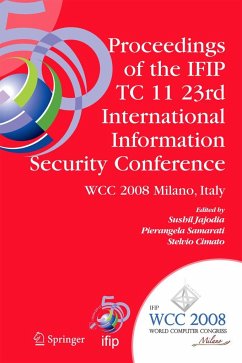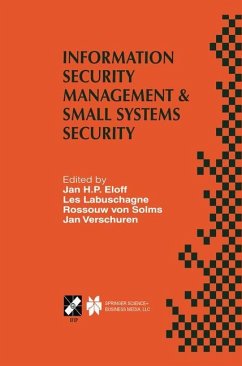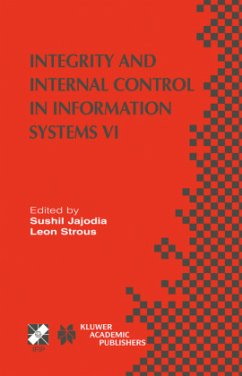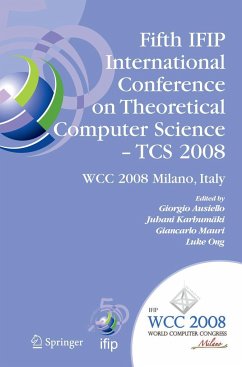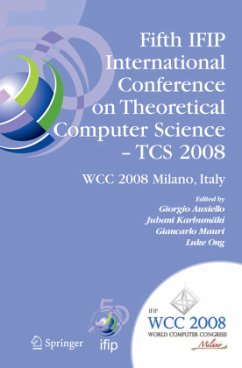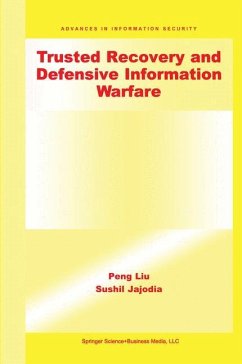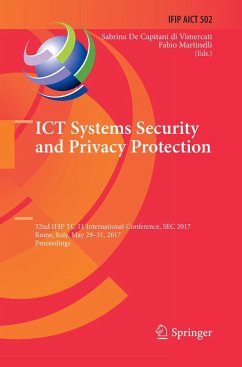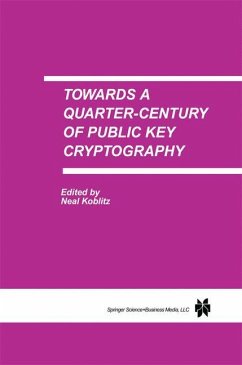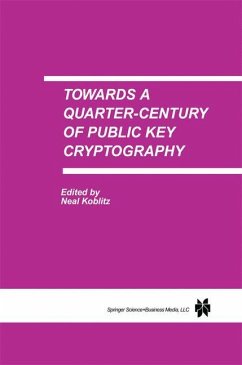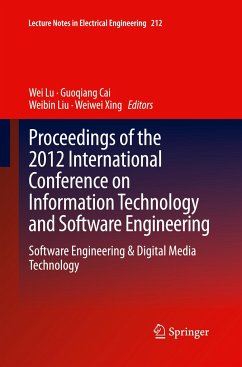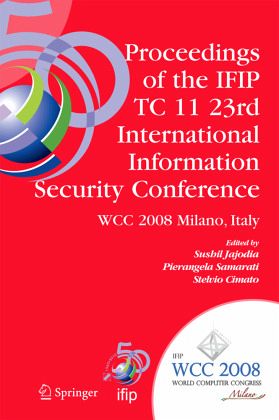
Proceedings of the IFIP TC 11 23rd International Information Security Conference
IFIP 20th World Computer Congress, IFIP SEC'08, September 7-10, 2008, Milano, Italy
Herausgegeben: Jajodia, Sushil; Samarati, Pierangela; Cimato, Stelvio

PAYBACK Punkte
58 °P sammeln!
This book constitutes the refereed proceedings of the IFIP TC 11 23rd Information Security Conference held in Italy on September 7-10, 2008.
The IFIP series publishes state-of-the-art results in the sciences and technologies of information and communication. The scope of the series includes: foundations of computer science; software theory and practice; education; computer applications in technology; communication systems; systems modeling and optimization; information systems; computers and society; computer systems technology; security and protection in information processing systems; artificial intelligence; and human-computer interaction. Proceedings and post-proceedings of refereed international conferences in computer science and interdisciplinary fields are featured. These results often precede journal publication and represent the most current research. The principal aim of the IFIP series is to encourage education and the dissemination and exchange of information about all aspects of computing.
The IFIP series publishes state-of-the-art results in the sciences and technologies of information and communication. The scope of the series includes: foundations of computer science; software theory and practice; education; computer applications in technology; communication systems; systems modeling and optimization; information systems; computers and society; computer systems technology; security and protection in information processing systems; artificial intelligence; and human-computer interaction. Proceedings and post-proceedings of refereed international conferences in computer science and interdisciplinary fields are featured. These results often precede journal publication and represent the most current research. The principal aim of the IFIP series is to encourage education and the dissemination and exchange of information about all aspects of computing.
These proceedings contain the papers selected for presentation at the 23rd Inter- tional Information Security Conference (SEC 2008), co-located with IFIP World Computer Congress (WCC 2008), September 8-10, 2008 in Milan, Italy. In - sponse to the call for papers, 143 papers were submitted to the conference. All - pers were evaluated on the basis of their signi?cance, novelty,and technical quality, and reviewed by at least three members of the program committee. Reviewing was blind meaning that the authors were not told which committee members reviewed which papers. The program committee meeting was held electronically, holding - tensive discussion over a period of three weeks. Of the papers submitted, 42 full papers and 11 short papers were selected for presentation at the conference. A conference like this just does not happen; it depends on the volunteer efforts of a host of individuals. There is a long list of people who volunteered their time and energy to put together the conference and who deserve acknowledgment. We thank all members of the program committee and the external reviewers for their hard work in the paper evaluation. Due to the large number of submissions, p- gram committee members were required to complete their reviews in a short time frame. We are especially thankful to them for the commitment they showed with their active participation in the electronic discussion.





